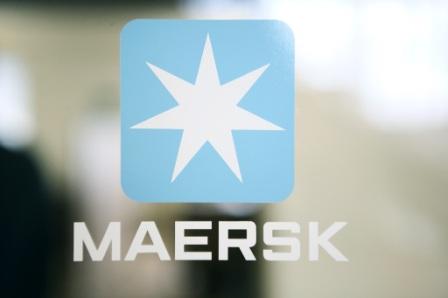
Maersk’s Profit Builds Up Steam, Soars 85% in Q1
 A.P. Moller-Maersk A/S, owner of the world’s biggest container-shipping line, reported an unexpectedly strong increase of 85% in first-quarter profit, buoyed by a strategy of aggressive cost management that analysts say will allow it to keep its lead in the industry.
A.P. Moller-Maersk A/S, owner of the world’s biggest container-shipping line, reported an unexpectedly strong increase of 85% in first-quarter profit, buoyed by a strategy of aggressive cost management that analysts say will allow it to keep its lead in the industry.
The shipping industry, whose other big players include CMA-CGM SA of France and Mediterranean Shipping Co. of Switzerland, the world’s No. 2 and No. 3, respectively, by container volume, is steadily emerging from weak rates and declines in trade volume brought on by the global financial crisis.
Rates have returned to pre-2008 levels, but they aren’t growing as fast as before, partly because of a splurge in ship-building between 2005 and 2010 that has left the market with considerable overcapacity.
The business remains difficult, and one or more of the top container lines may not survive, analysts say. But the harsh climate has favored one company over the rest: Maersk.
The Copenhagen-based operator, which owns 243 ships and controls an additional 350 via charter, has aggressively reduced costs, laying off workers, cutting ocean speeds to save fuel and laying up surplus vessels. The result: A record net profit of $5.18 billion last year, following a $5.49 billion loss in 2009.
Its results for the first quarter of 2011 again proved the point. Cargo volume increased 5% from a year earlier to 1.84 million 40-foot containers or equivalents. And the average rate for shipping a box was $2,908 for each 40-footer or equivalent, up 2% from the first quarter of 2010.
Net profit for the quarter surged to $1.22 billion, blowing past the average $863 million expected by analysts polled by Dow Jones Newswires.
Overall revenue grew 10% to $14.5 billion, “primarily due to higher container freight rates, container volumes and oil prices,” according to the company, which also has an oil-and-gas business.
These are “very strong results,” said Axel Funhoff, an analyst with ING in Brussels.
“Our businesses have performed very well, even as tanker rates have remained low and container rates have been decreasing during the period,” said Nils S. Andersen, Maersk’s chief executive.
Analysts cited the company’s cost-management practices as the key to its strong results. Maersk “is able to squeeze the most out of every client through yield management,” said Lars Heindorff, an analyst for ABG Sundal Collier, referring to a company practice of pricing contracts differently with each customer. “And the fuel surcharge is very efficient, too. If the oil price increases by $10, they get roughly 80% back in surcharges, which is well above what most competitors get.”
However, Maersk officials were quick to cast a shadow over the rest of the year. “We are really pleased with the [first-quarter results], but we also realize that this is one quarter, and we will be struggling with a lot of challenges during the rest of the year, including lower rates,” said Mr. Andersen.
The company said its oil-and-gas business saw operating earnings increase around a third to $2.13 billion, thanks to an average oil price of $105 a barrel, up 38% from a year earlier.
In February, Marseille-based CMA-CGM reported a net profit of $1.6 billion for 2010, after losing $1.4 billion in 2009. “The group successfully capitalized on the upturn in world trade during the year,” its chief executive officer, Rodolphe Saadé, said at the time. But the company, controlled by Mr. Saadé’s family, still has a net financial debt position of $4.5 billion. Geneva-based MSC, controlled by the secretive Aponte family, is closely held and doesn’t disclose earnings.
A good indicator for the container-shipping business is overall trade. The World Trade Organization has forecast a 6.5% increase in global trade for 2011 after a record increase of 14.5% from a very low base in 2010. “The hangover from the financial crisis is still with us,” WTO director-general Pascal Lamy said in a recent statement.
By John W. Miller (c) 2011 Dow Jones & Company, Inc.

Subscribe for Daily Maritime Insights
Sign up for gCaptain’s newsletter and never miss an update
— trusted by our 109,185 members

Get The Industry’s Go-To News
Subscribe to gCaptain Daily and stay informed with the latest global maritime and offshore news

 Join The Club
Join The Club






